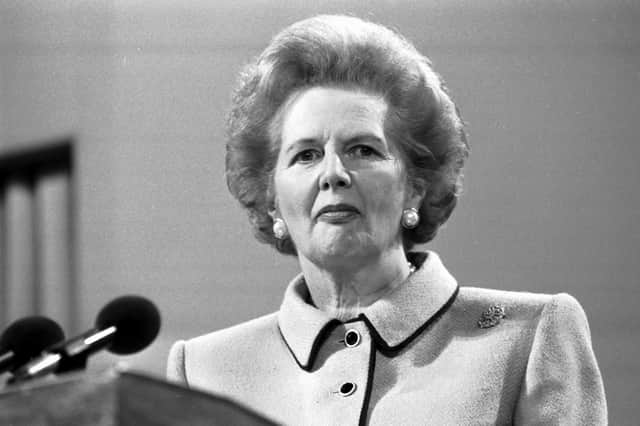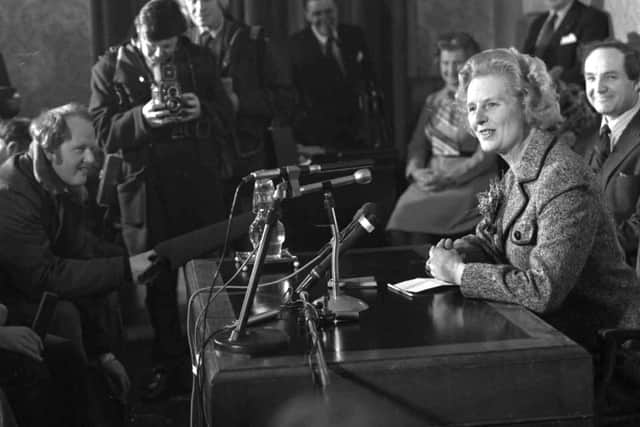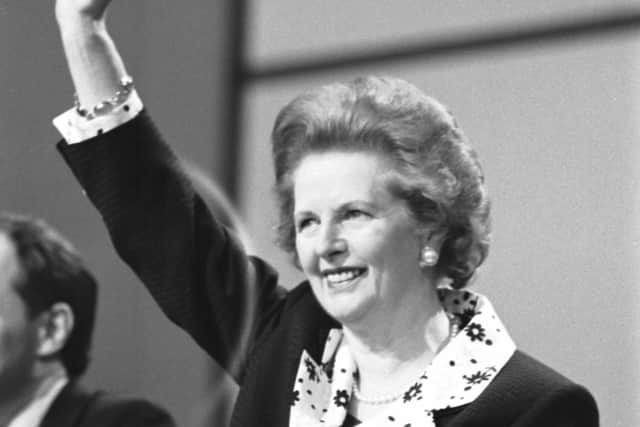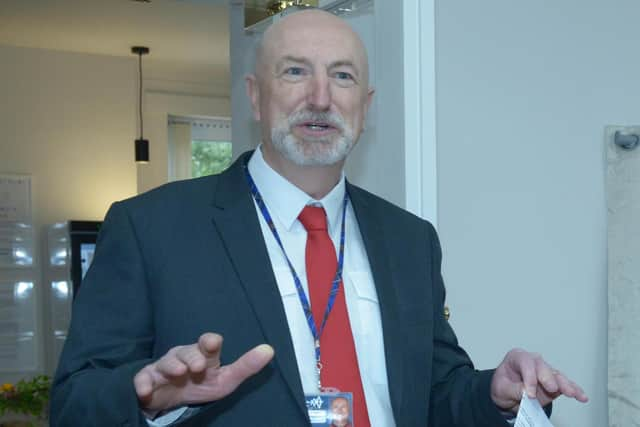Margaret Thatcher's legacy - formidable & divisive 30 years after leaving office


A divisive, powerful figure in British politics, her 11 years as Prime Minister ended on November 22, 1990.
Thirty years on, her surname alone continues to evoke strong opinions.
Advertisement
Hide AdAdvertisement
Hide AdThe Milk Snatcher, the Iron Lady who was not for turning, and the leader who once said there was no such thing as society left a legacy that was more wide reaching than most who have occupied Number Ten.


The 30th anniversary of her political demise sparked many memories of a formidable leader - not many of them positive.
Thatcherism re-shaped the way we lived and many services, and local authorities were at the forefront of many of her policies.
Councillor Neil Crooks was vice convener of the Scottish Association of Direct Labour Organisations and a member of Kirkcaldy District Council when the winds of change started to howl through the corridors of the Town House in the Lang Toun.
Advertisement
Hide AdAdvertisement
Hide AdThree decades on, the memories burn bright as he leads Kirkcaldy’s area committee and wrestles with the impact of the pandemic on a district still finding its way back from the devastation of the mining industry – another legacy of Thatcherism.


He pinpointed the sell-off of council houses as the first evidence of the Prime Minister’s impact.
Kirkcaldy District Council resolutely opposed the policy, and challenged much of it before bowing to the inevitable.
The first council house sale in the town’s Kennedy Crescent was marked with a visit by Malcolm Rifkind MP, and a small demo across the road as he handed over the keys.
Advertisement
Hide AdAdvertisement
Hide Ad“That was the start of destroying our communities and an outcome which made it harder for local people to stay locally,” said Neil.


“The right to buy your home was popular with many people, and I don’t blame them - mortgages were cheaper than council rents ,and the discounts were generous, but all the best properties were snapped up.
“During the miners’ strike we’d done everything we could to help be waiving rent and rates. The Bradford and Bingley wouldn’t offer that if you had a mortgage, so it changed people’s outlook.
“We had to find a way to sell properties. Scotland could use the money from them to invest in protecting services, but down south that didn’t happen. Money, millions of £s, were held in an account. To me, it was abhorrent.”
Advertisement
Hide AdAdvertisement
Hide AdCouncils were then faced with compulsory competitive tendering as the private sector met the public sector head on.
Everything from maintenance to emptying bins was up for tender.
“We had companies from Spain and France waiting to come in and run our refuse services,” he recalled.
“We knew there were cabals bidding for work trying to get local government jobs away. Moving them into the private sector meant the loss of pensions and conditions – these were seen as very secure jobs.
Advertisement
Hide AdAdvertisement
Hide Ad“We did a lot to ensure there were no local government jobs lost in Kirkcaldy District Council.
Column: Street art can transform Kirkcaldy town centre landscapeCoronavirus in Scotland: Health Secretary Jeane Freeman confident...Musicians rally behind Fife live music venue at risk of permanent...
“I brought management to the table with trades unions - because both were under threat.
“White collar jobs would have been next to go, so we worked together to find solutions. It was in everyone’s interest to listen and work out what to do rather than be argumentative and polarised.”
At times it felt like local authorities were under siege.
“We were under scrutiny like never before,” he recalled.
Advertisement
Hide AdAdvertisement
Hide Ad“We had to create client and corporate relationships and we had to deliver six per cent returns on contracts - Thatcher wanted to disturb the synergy between management and workforce at local government level, and some councils fell for it, but not ones run by Labour.
“But we - the district council and Fife Regional Council - worked together to keep the private sector out. There were no benefits to the public of these services being taken over, Once they’d gone, that was it.
Thirty years on, Mr Crooks still maintains one of Prime Minister’s motives was that of revenge.
“She knew local government had brought down Ted Heath. She wanted revenge.” he said.
“Strathclyde was a big council - too big for her liking.
Advertisement
Hide AdAdvertisement
Hide Ad“It had Glasgow and much of the west, so she brought in the reorganisation of local government. In Fife that meant getting rid of district councils.
“I think we operated better when we had them for the likes of Kirkcaldy, Dunfermline and North-east Fife. There was a good camaraderie among staff - people were all local, and it was a vocation rather than a job.”
No surprise then that few within the local corridors of power mourned her political demise and that tear-stained departure and one final glance as her car departed Downing Street.
“Relief” was the overwhelming feeling for those who fought her policies.
Advertisement
Hide AdAdvertisement
Hide Ad“She’d destroyed the NUM and split society,” said Mr Crooks, but there was also acceptance that, as a politician, she was formidable.
“I’ll admit she was a terrific , brilliant leader - grudgingly,” he said. “Her policies were alien to how I think, but if you were of that mind on the right of the political spectrum, she was probably the greatest political leader that wing has ever had globally.
“She did not blink. She did what was necessary to get the outcome she wanted.
“If only we’d had someone on the left with the same outlook then today we might not have Boris Johnson …”